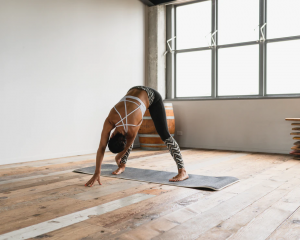How Regular Exercise Enhances Recovery

The road to recovery is a challenging one, but you might be surprised at the difference taking care of your body can make. Including a fitness regimen and eating a healthy diet can ease some of the bumpiness of your journey, and give you positive, lifelong coping skills. Read on for some ideas to help you ease into a fitness program that will work hand-in-hand with your recovery program.
Exercise And Your Brain
Chances are you’re well aware an addiction took over your life, but you may not realize how that happens. As News in Health explains, when you become addicted to a substance, it basically rewires your brain. Normally, your body and brain receive a physical reward from healthy activities in the form of a chemical release, but with an addiction that reward comes from the substance you used. Exercise, for instance, can provide a natural “high” as your body releases endorphins, dopamine, and serotonin. Those chemicals reduce stress, lower pain levels, and boost your mood.
When you have an addiction, your brain becomes rewired into seeking those pleasurable sensations from the substance. It doesn’t mean you can’t still generate those wonderful chemicals from a good workout, though, and it only takes about 20 minutes of aerobic exercise for all the perks.
Don’t Over Do It
While it might sound like a hard workout is an easy answer, the fact that so many people don’t exercise is telling. The American Psychological Association speculates that this is because novices often overdo it at the start. You’ll still get that feel-good chemical release, but it’s delayed, and the workout itself won’t feel as good, and you’ll be less inclined to keep up a regimen. The key is to choose something that will get your heart rate up without overdoing it so you don’t get discouraged and bailout.
Ideally, you’ll ease your way into a fitness regimen, rather than trying to do too much too soon. Think about something you will enjoy and is relatively easy to get into, like cycling, yoga, or walking. You can pick up some equipment for a home workout, like an easy-to-use recumbent bike for cycling or a mat and bolster for yoga, and for walking, a simple pair of comfortable shoes will suffice.
Plan your workout accordingly. If you elect to invest in a recumbent bike, for instance, prepare for your session with some light stretches beforehand, make sure you’re comfortably seated, and spend a good five minutes lightly cycling at the beginning of your workout to warm up your muscles. Easing into your workout routine will help you avoid injury and help you maintain a positive attitude so you look forward to the next time.
Address Your Diet
You might be surprised to learn that how you eat can affect your addiction recovery, but just like mom said, you are what you eat. U.S. News explains that whole foods can support your body as it heals during recovery. Foods high in tyrosine, like brown rice, sunflower seeds, and bananas, provide the nutrients your body needs to be able to release dopamine, and foods with tryptophan, which is found in tuna, beans and lentils, have nutrition to help you release serotonin. Antioxidants, which are rich in foods like berries, artichokes, and pecans, will help your body reduce the toxins leftover from substance abuse.
Many of those foods might be right in your pantry. Add some recovery-friendly dishes to your diet that don’t require a trip to the store, like black bean and corn quesadillas and red lentil sloppy joes. You’ll find those nutritious recipes are also a delicious addition to your diet!
Even though recovery is challenging, taking good care of your body can help. Engage in an exercise regimen and adjust your diet. Soon, you’ll be feeling better than ever before.
About The Author: This post is courtesy of Dylan Wallace. Wallace started his passion project, PreventionConnect.org, to offer those in addiction recovery an online support community to help them get and stay well. In addition to providing peer counseling services for fellow recovering addicts, he spends most of his free time creating abstract art.

